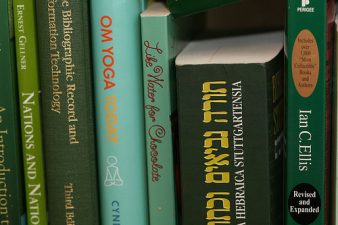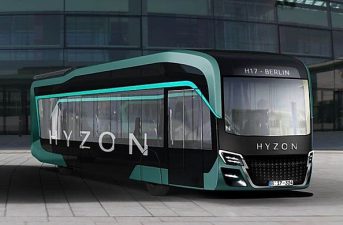 The Mecca of green? “Green” activism has defined Jewish and Christian culture for decades already. Now, Muslim leaders in Saudi Arabia keen to “green” the annual Hajj pilgrimage.
The Mecca of green? “Green” activism has defined Jewish and Christian culture for decades already. Now, Muslim leaders in Saudi Arabia keen to “green” the annual Hajj pilgrimage.
Yussif Osman sits quietly by his desk, a framed piece of cloth behind him next to a picture of his father who died just a few years ago. The cloth is a piece of the sacred shroud that covers Islam’s holiest shrine, the Qa’aba in Mecca: “This was a testament to my late father and what he stood for,” says Osman as he rifles through his desk to dig up some environmental journals he has been reading over the past few months.
Osman believes it is time for a change. The change he is talking about does not concern religion specifically, but relates to how Muslims journey to Mecca for the annual pilgrimage, or Hajj, and the environmental impact they have on their surroundings.
For far too long, Osman explains, “we have believed that no matter what happens the world will always be there as if it is permanent like God, but the reality is that we are destroying it and if we don’t take action soon, it will be gone. Or at least we will be.”
What better place to begin educating and imprinting a sense of environmentalism than a place where three million Muslims visit each year to carry out one of the five pillars, or obligations, of Islam?
Other Muslims are thinking similarly to Osman. At the International Islamic Green Movement meeting in Jakarta this April participants called on their governments to implement new strategies to make the holy pilgrimage more environmentally sustainable.
The plan proposed at the conference includes banning plastic bottles at pilgrimage sites and holding workshops to discuss the connection between environmentalism and Islamic teachings.
Mohamed Sembiring, a member of the Indonesian environmental organization Kehati, said that the initiative is expected to include “many new approaches to the Hajj. Among these are eco-friendly mosques, meaning they will be charged and run with sustainable materials.
“We also hope that the Saudi government will be able to print Qur’ans on paper that will be part of new forestry programs that recycles material, making it more biodegradable and won’t affect the life of forests and trees.”
Osman, who has made his name as an advertising guru in the Gulf and in his current role as a media consultant, has put his efforts toward environmental initiatives in the region for the last year. One of those initiatives is convincing the Saudi government to take environmental action now rather than later.
“It might be expensive to go after these projects, but it will be even more expensive if we do nothing today and wait five years or 10 to start working on these projects,” the independent British-educated consultant said.
For their part, Saudi Arabia’s government appears ready to take on the proposed initiatives, which include the use of biodegradable plastic containers, making mosques eco-friendly and promoting awareness of the environment and climate change at the pilgrimage.
A Saudi government spokesman told The Media Line that the government believes there is much work to be done to bring awareness of environmental issues to the Hajj.
“The activists and Muslim leaders who are calling for combining faith with environmental protection are important and we are taking their ideas and statements seriously, and the Saudi government is looking at implementing a number of new policies that will help this be achieved,” the government spokesman said.
Some of these policies include using biodegradable materials for Hajj travelers and teaching seminars that embrace environmentalism within the Islamic faith.
“It is hard to change people’s perceptions, but it is vital that with these calls, we understand that there are people out there willing to make a stand. The environment is extremely important,” added the spokesman.
He pointed out that in Mecca and Medina, the two holiest cities in Islam, the Saudi government has drawn up plans that could see solar energy being used to power mosques, hotels and banquet areas. “This would help reduce the environmental imprint of the Hajj,” the spokesman said.
Following in the Moroccan government’s footsteps, Saudi Arabia could become a leader for environmental policy on the grassroots level, said Tunisian-French environmentalist Nour Michel. She believes that only through education can the Middle East show the world that these issues are serious.
Think of the carbon footprint of pilgrims
“We send millions to the pilgrimage each year and we just take for granted it will continue to be there and be done in the same way. Times are changing and we have to accept that this is very important for the future of the region and the world,” she said, adding that the “environment is the number one issue of the younger generation and we have to act if we are going to have a future.”
Osman couldn’t agree more. Moving slowly towards his office kitchen he turns the faucet and flips the filter on, handing out glasses of water to his guests. “It has to start with each of us. Next time I go on the Hajj, I expect to have an eco-friendly trip and one that I am proud of as a Muslim.”
Read more on green Islam and Hajj:
Muslim World Takes Steps for Greening Hajj
Greening Hajj and Medina for the Muslim World
Swine Flu Finds Hajj 2009
Go to Medina and Mecca on Hajj on Fast Sustainable Train
Saudi Arabia Adds Eco-Guards to Its Police Force
(This story was first published by the Middle East News Source, The Media Line)
Image via samlavi, of “green” mosque lighthouse in Jaffa, Israel.



